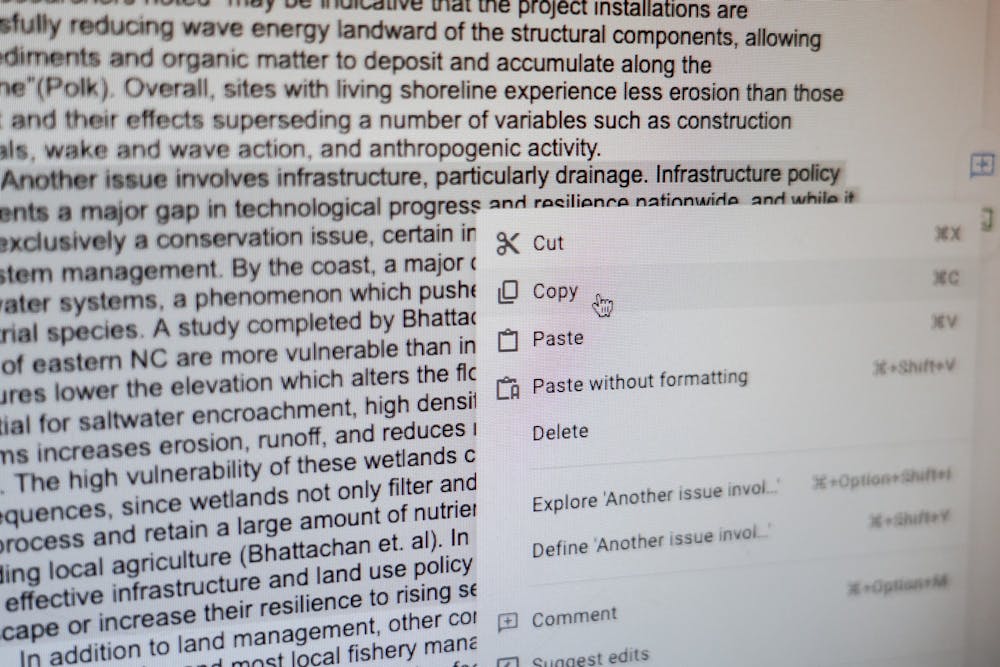In the latest public controversy to come out UNC over the past few years, former Vice Chancellor for Research Terry Magnuson resigned on March 10 after admitting to plagiarism on a grant application.
Magnuson’s case magnified the ongoing issue surrounding academic integrity, not only at UNC, but academia in general – an issue that has been exasperated by nearly two years of virtual education.
Let’s admit it, most of us have not gone untouched by academic dishonesty at one point or another in our schooling career, whether that be in our K-12 experience or in higher education.
While we might be ashamed and reluctant to acknowledge any wrongdoing, studies have shown that cheating is pretty widespread in academia. Between 75 and 98 percent of college students admitted to cheating at some point in their academic careers, according to data from Best Accredited Colleges.
And in a digital age where resources like Chegg, Course Hero, Quizlet and StackOverflow can make it easy to look up answers or get explanations for problems that we otherwise would be lost in, it can be hard to not use them.
Throughout the reign of "Zoom University," it was even more difficult for professors to monitor what their students were actually doing behind their computer screens. Short of using a lockdown browser, professors could only hope that students would stick to the honor code and not use online resources.
But taking the easy way out is just too enticing, especially for very difficult classes where heavily weighted exam or assignment grades can make or break your grade and your GPA.
And Magnuson shows this issue isn’t limited to students either.
Indeed, while many professors are reluctant to confess to any misdoings, there are numerous stories of professors who have anonymously admitted to cheating during their academic careers.



